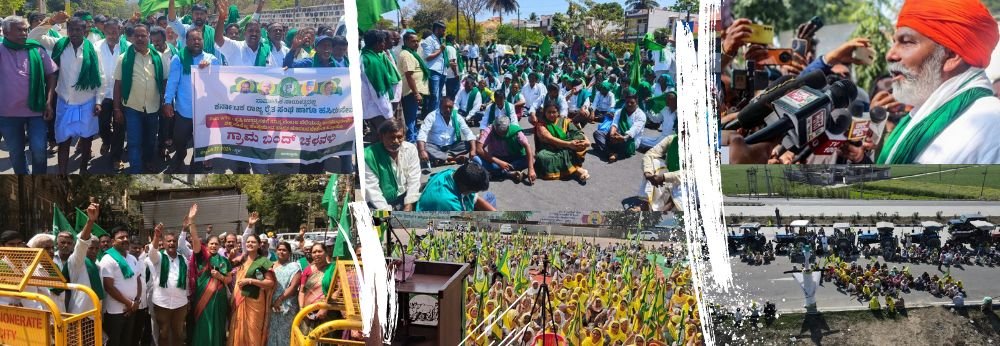Reportedly, on the 26th February, farmers staged protests against the World Trade Organization at over 400 district centers across India. They handed over petitions to the officials of the State urging the Indian government to protect domestic support programs and food stockholding programs at the 13th Ministerial Meeting of the WTO in Abu Dhabi.
Over the course of history, India’s agricultural movements have consistently stood as significant opponents to the globalization and market liberalization efforts championed by Bretton Woods institutions and the World Trade Organization. Particularly since the early 1980s, India’s farm unions have rallied against the General Agreement on Tariffs and Trade (GATT), a precursor to the World Trade Organization. They stepped up their agitation in the late 1980s and early 1990s with vehement opposition to the Trade-Related Aspects of Intellectual Property Rights (TRIPS) agreement. Peasant unions perceived TRIPS as a direct threat to their sovereignty over seeds, sparking protests and direct-action campaigns that propelled them onto the global stage.
During this period, India’s capital and other major cities witnessed widespread mobilizations by small-scale farmers against the Dunkel Draft, a legal document authored by Arthur Dunkel, the then Director-General of GATT. This draft addressed issues such as market access in agriculture and intellectual property rights. In 1992, both the Bhartiya Kisan Union and the Karnataka Rajya Raitha Sangha, representing significant memberships of small and medium-scale farmers, demanded the rejection of the TRIPS draft. They also insisted that any free trade agreement India considered be thoroughly discussed, debated, and agreed upon by both houses of Parliament before ratification.
The policies unleashed by the World Trade Organization on the developing world aimed at implementing market reforms through deregulation and the privatization of public services. These measures pressured governments in the Global South, including India, to reduce public investments and welfare programs, mirroring the broader trend of liberalization.
Fast forward to 2024, a national call by protesting farm unions to observe February 26th as ‘Quit WTO Day’ harked back to this history of resistance against globalization and its institutional frameworks. Three decades later, the state of Indian agriculture underscores the validity of these concerns. Half of all farm households are burdened by debt, grappling with rising input costs, inadequate remuneration, and a litany of environmental challenges such as droughts, declining groundwater levels, erratic weather patterns, pest infestations, and soil degradation. As a result, agriculture has become an increasingly precarious endeavor for small-scale and subsistence farmers.
Since 2004, Indian agricultural movements have consistently pushed for an inflation-adjusted minimum support price (MSP) for their crops. They have organized numerous protests, advocating for the implementation of the Swaminathan Commission Report, which recommended setting the MSP at a minimum of 50% above the weighted average cost of production. This demand reached its zenith in 2021, marked by a historic and possibly the longest farmers’ agitation lasting 13 months. Their primary demands were the repeal of three contentious farm laws and the enactment of a legal guarantee for the Minimum Support Price.
India’s price support mechanism, covering 23 crops, has frequently faced scrutiny from both domestic critics and international bodies like the World Trade Organization. Critics among the neoliberal economists, often label these domestic support programs as trade-distorting, echoing sentiments from Western governments and export-oriented economies. The major agricultural exporting countries, has proposed a 50% cut in the global level of WTO members’ entitlements to support agriculture by the end of 2034. Within India, proponents of market reforms argue that since only a fraction (their estimates ranging from 7% to 14%) of farmers benefit from these programs, the government should open up procurement and distribution to market forces. However, farmers challenge this perspective, using the same data to make their case.
In a recent interview, Devinder Sharma, a trade and policy analyst, poses a pointed question. “Even if we accept that only 14% of farmers access the price support mechanism, it highlights that 86% of farmers are already subject to market whims. If markets were truly efficient, why are so many of us in debt? Why do our input costs continue to rise while incomes decline?”
The Situational Assessment Survey for Agricultural Households in 2021 computed the average monthly income of a farm household at Rs 10,218 (~$123 USD at current exchange rates). This includes income from wages, leasing out land, receipts from crop production, income from farming of animals, and other non-farm incomes. For a country that is still largely agrarian, these income levels are staggeringly low.
While most farmers agree that the current public procurement system requires reform, they emphasize the need for mechanisms to enhance access to public markets, improve governance, transparency in trading, pricing, trader and distributor margins, and bolster supporting infrastructure such as transportation and storage. However, they disagree with the blind faith in market forces to address India’s agrarian crisis. Farmers contend that implementing legislation to set a minimum price would discourage private buyers from buying below the production cost, representing a crucial measure to ensure farmers stay in agriculture and sustain the nation’s food supply.
In this context, the ‘Quit WTO’ call issued by Indian farmer unions gains significance.
These unions unanimously believe that the WTO aims to eliminate farm subsidies. Farmers organized tractor rallies in Punjab, Haryana, western Uttar Pradesh, Karnataka and elsewhere, burning effigies and demanding the exclusion of the agriculture sector from WTO agreements.
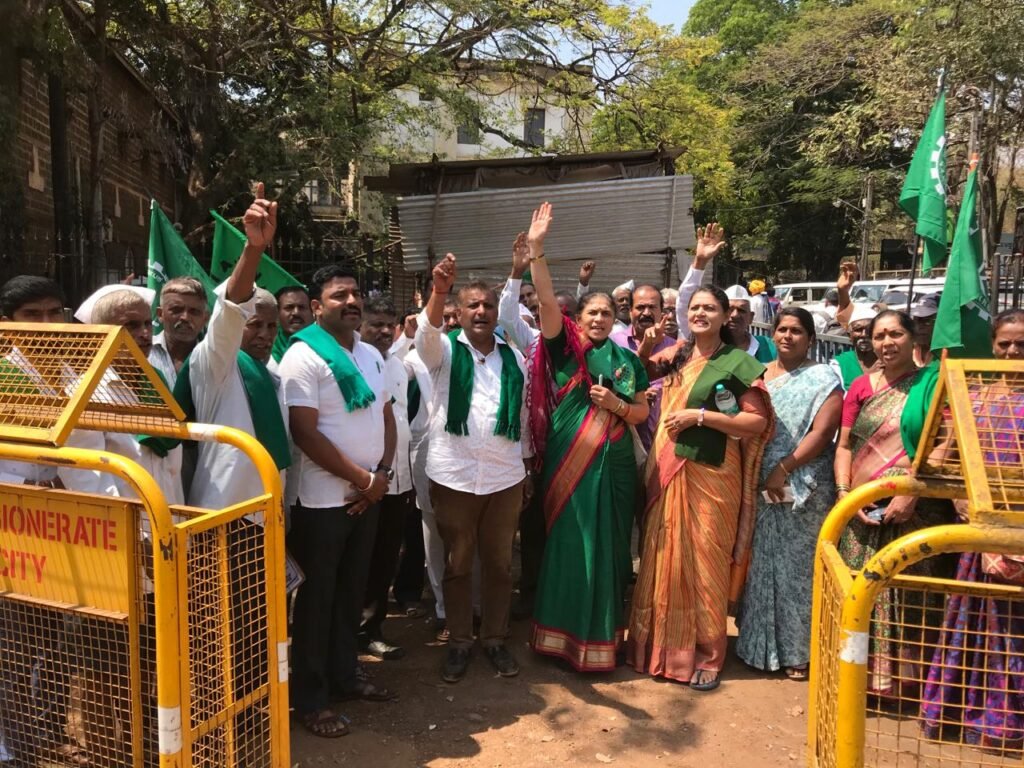
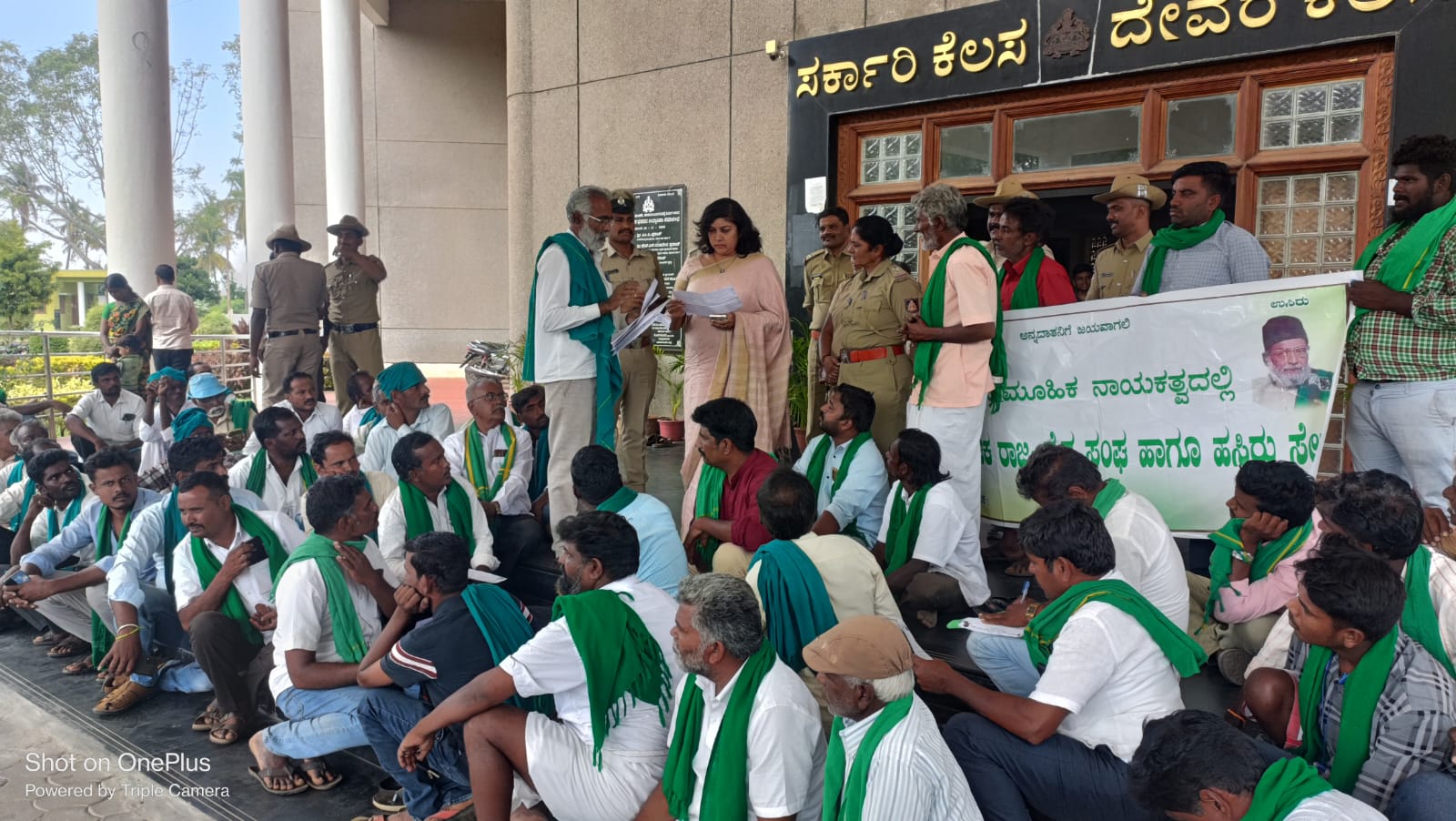
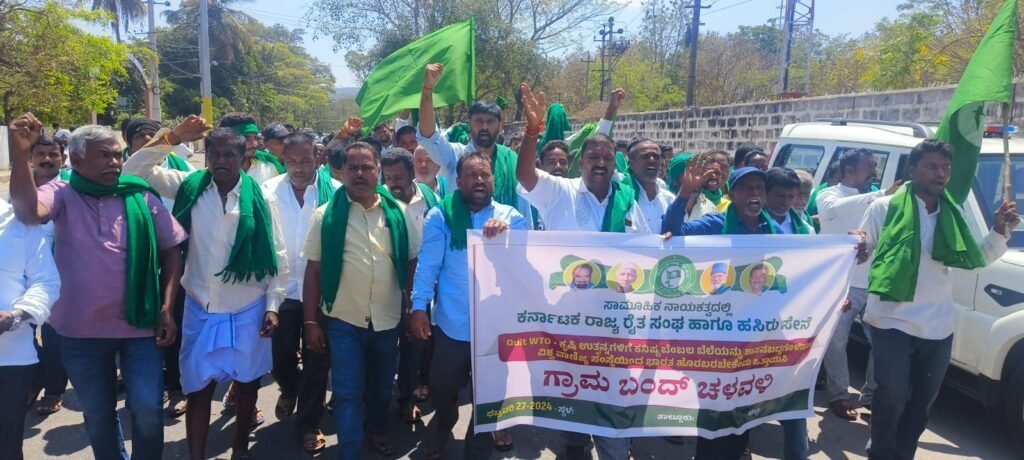
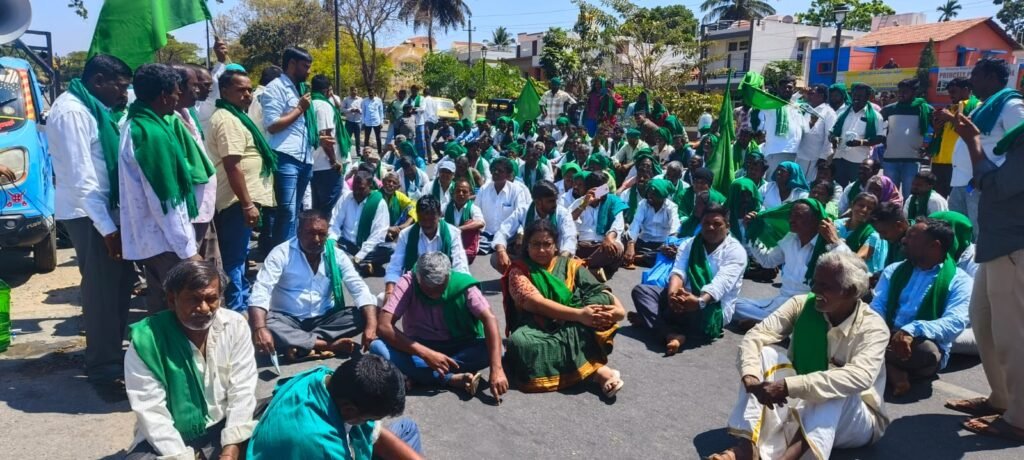
The national coalition of protesting farmers, Samyukt Kisan Morcha, stated in a press release, “India’s food stocking program for the Public Distribution System is currently protected from WTO challenges under the temporary peace clause. However, this protection is likely to be overturned. If so, India needs to withdraw from the WTO to safeguard its food security programs and agricultural production.”
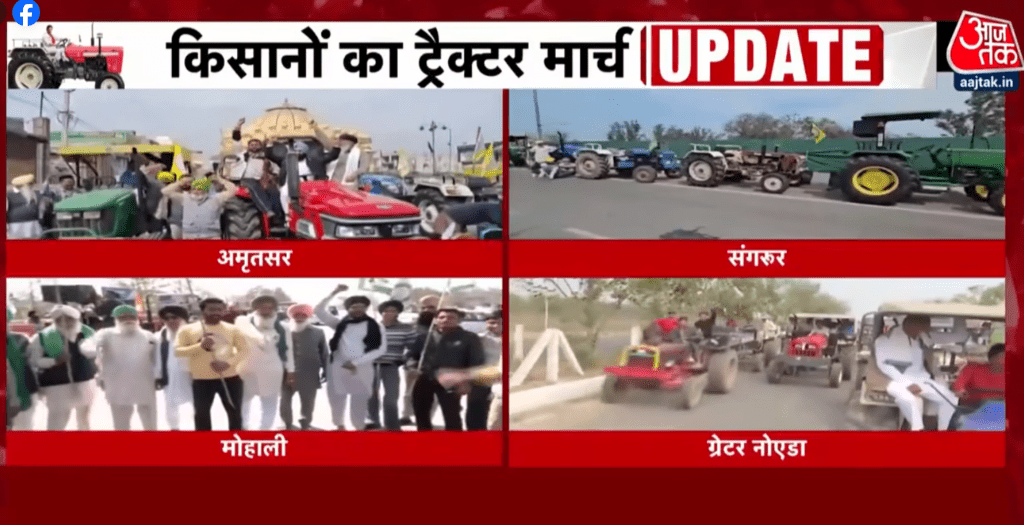
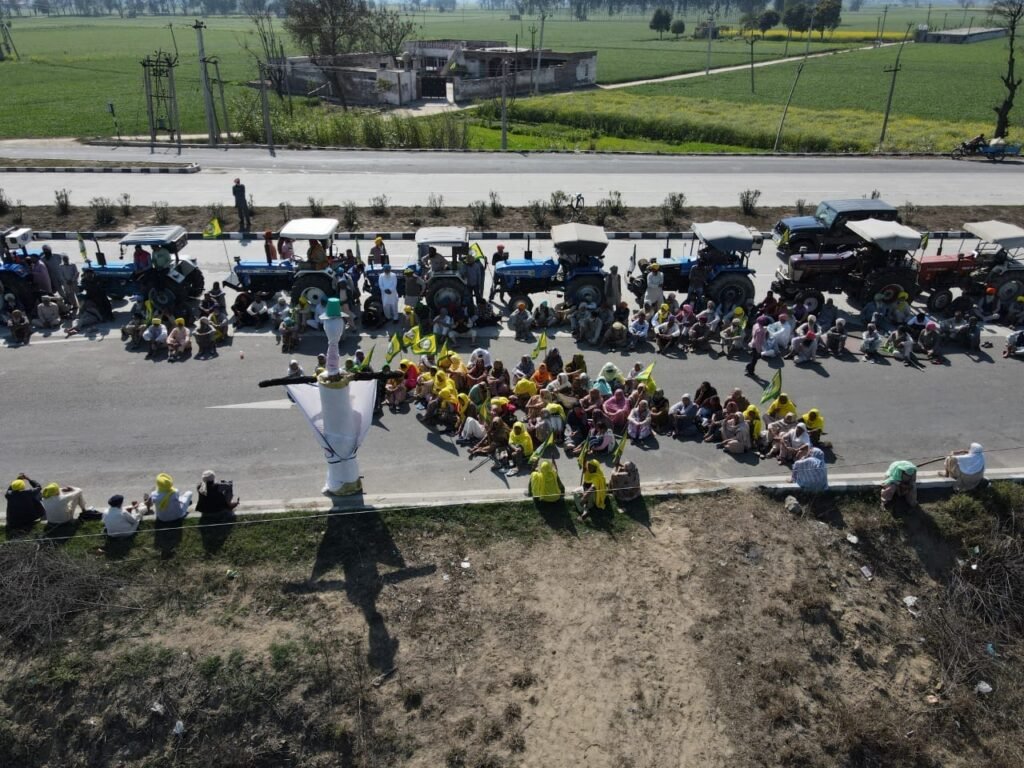
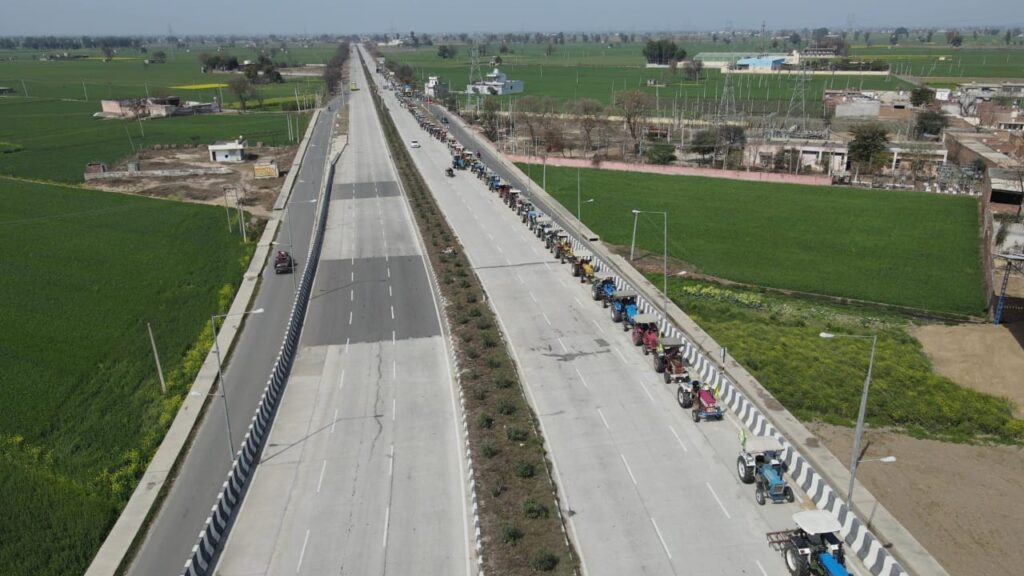
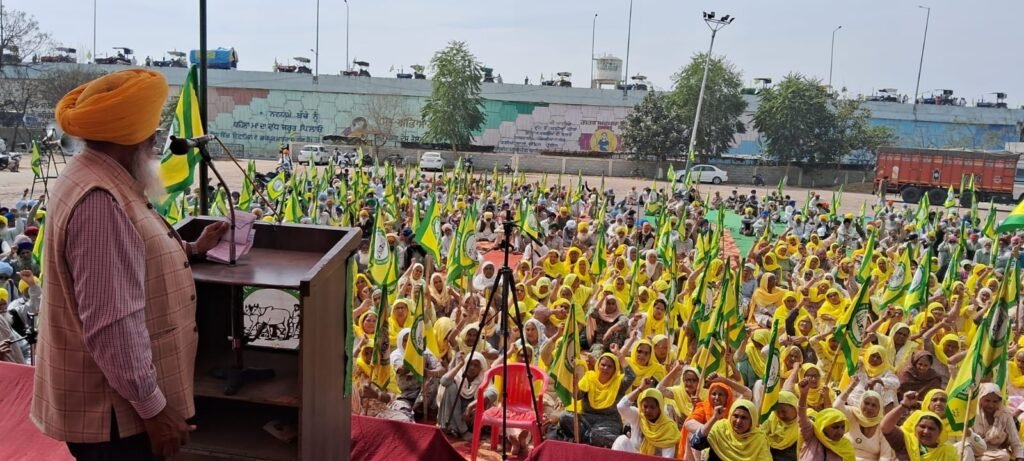
Agronomists and policy analysts also challenge the mainstream media narrative that all farmer produce under this system are to be procured by the government. Farmers seek a legally guaranteed remunerative price that provides them with a decent margin above the cost of production. They advocate for uniform application of this law across the country to prevent interstate trading anomalies. A legally guaranteed Minimum Support Price serves as a safeguard against low prices for farmers, especially by private companies.
In a letter sent to the Minister for Trade and Commerce, the Indian Coordination Committee of Farmers’ Movements has asked the Government of India to defend the price support program at the WTO “These crucial subsidies, including input subsidies which are given as a policy tool for supporting agricultural development under special and differential treatment and the de minimis allowances which include Minimum Support Prices (MSPs) and Fair and Remunerative Price (FRP), ensure our survival and ability to invest in seeds, fertilizers, and other inputs. Without them, many farmers will be pushed into further poverty and despair,”
This post is also available in Français.

